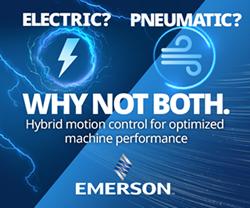PostProcess Achieves Milestones for Automated Surface Finishing of Complex Additive Manufactured Metal Parts
PostProcess Technologies has successfully delivered excellent surface finish standards and replicable results to an exacting requirement for complex metal parts with its automated Hybrid DECI Duo solution. In a newly published case study, PostProcess demonstrates the transformative outcome with additive manufactured titanium and nickel alloy shrouded impellers for Ingersoll Rand.
After parts arrived off the printer with an Ra (roughness average) value that did not meet their specifications, Ingersoll utilized multiple traditional 3D post-printing methods that fell short of their tight tolerance requirements for aerodynamic testing and exacting surface finish needs for aerodynamic performance. After teaming with PostProcess and utilizing their automated Hybrid DECI Duo solution, Ingersoll has obtained consistent, repeatable Ra results for the 3D printed shrouded impellers as proven through benchmark testing. The software-driven, hands-free DECI Duo delivered parts that consistently passed aerodynamic testing with flying colors, with an average of 70-80% reduction in Ra for parts run for 20 minutes or less. While its high quality and consistency requirements led Ingersoll to PostProcess, the ease of operations and cost savings are seen as significant additional advantages.
"We have chosen the DECI Duo because of its repeatability, minimal setup, processing times, and cost of ownership. Photochemical machining, extrude honing, and micro polishing or micro machining all yield very good results when applied correctly, however extensive tooling and equipment costs, setup times, and required DOEs prior to applying the surface finishing method to obtain a repeatable process have made the DECI Duo a better option.
In addition, some of aforementioned finishing techniques unevenly remove material inside the flow path of the impeller, whereas the DECI Duo uniformly treats the entire surface of the flow path. The final geometry of the flow path must remain as unaltered as possible after post-processing of any kind."
Ioannis Hatziprokopiou
Mechanical Engineer
New Product Development
Ingersoll Rand Compression Technologies & Services
To learn more, download the case study at:
http://www.postprocess.com/case-study-surface-finishing-for-3d-printed-metal/
Featured Product

